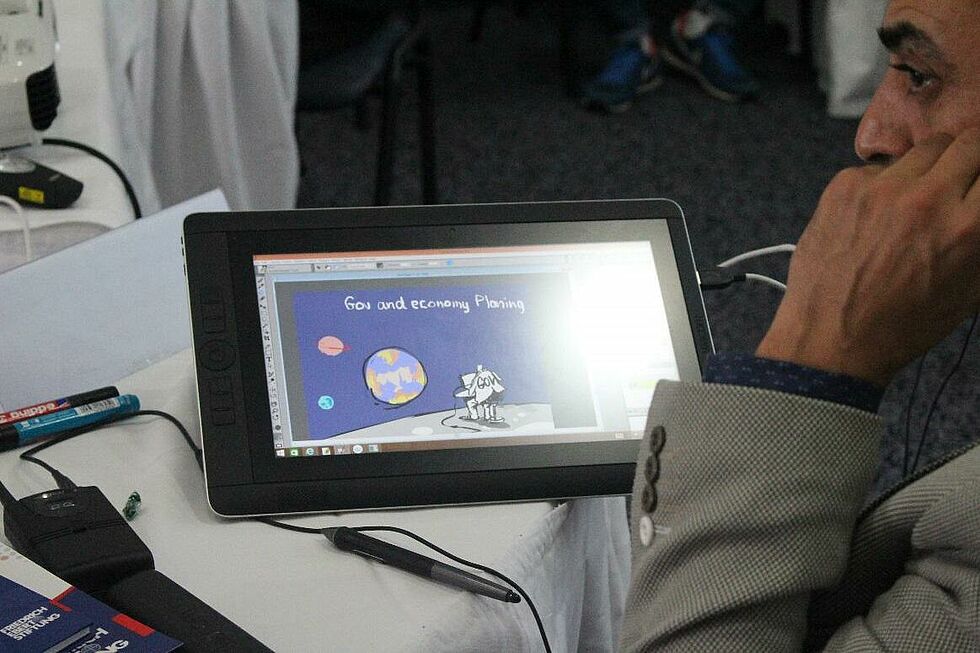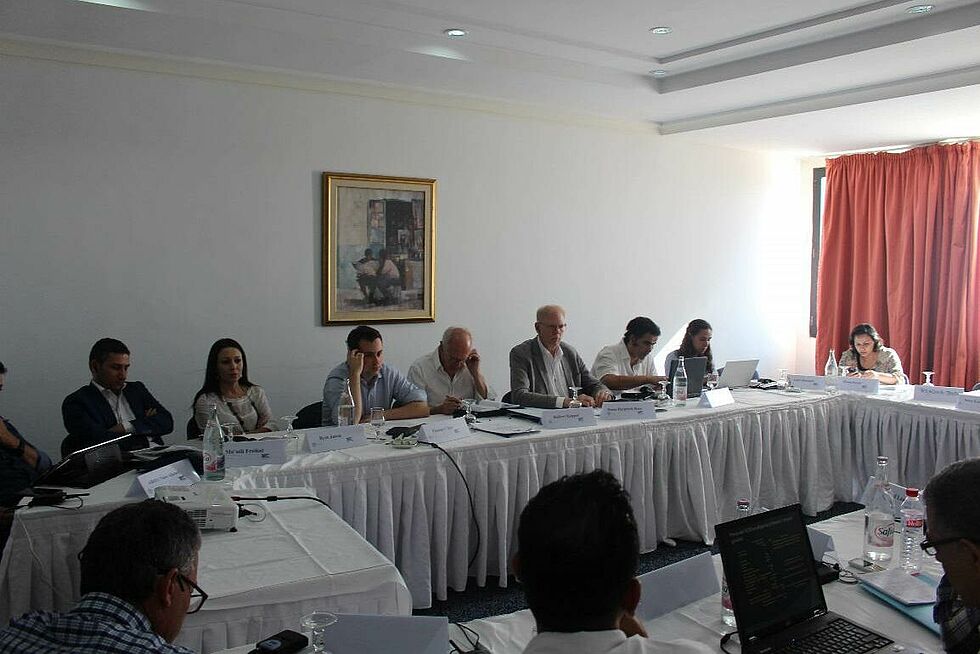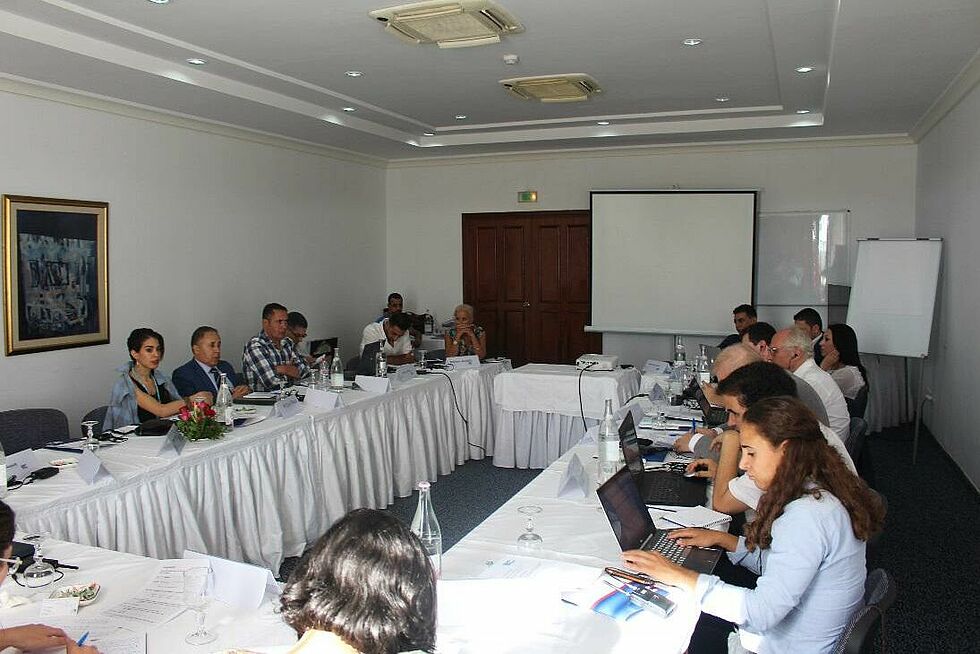Alternative Economy and employment
A keynote intervention by German professors Mr. Bass and Mr. Kappel on employment policies for Tunisia set the stage for the day of debate.
The 19 experts participating in the workshop from the MENA countries presented different experiences of social economy while proposing scientific and theoretical frameworks for objective reading of existing cases. Thus, the experiences of women working in a cooperative system in Tunisia, Morocco and Egypt, as well as the solidarity-based social heritage of the Kabyle region of Algeria, have provided opportunities for exchanging and discussing alternative economic practices in the MENA region.
The discussions also focused on the contribution of alternative economies to the traditional economies and the possibility of a complementarity between the two socio-economic domains. However, the impact of all existing and possible practices on the labor market has been the main concern of experts who did not dismiss the role of States in supporting alternative economies and protecting actors in particular, while insisting on respect for the specificities of each region, each experience and each social model of solidarity.
Interventions also focused on a new role of the State imposed by current and future transformations such as digitalization, and its relations regarding institutions with solidarity-based economies. The experience of the laws on cooperatives in Morocco as well as the pluralistic institutional arrangements held in Algeria were mentioned on that occasion.
Advocacy has also affected the informal economy, particularly the production of new and classic goods and services, legal vacuums and weak public policies, make them unregulated. In this category, fair trade and innovative social-solidarity are risking to be persecuted, excluded, marginalized or opposed by public authorities with direct consequences on nascent or existing components.





